Gender in climate and development projects: An overview
31 March 2023, Category: All insights, News, Tags: climate change, climate finance, COP27, GCF insight, gender, gender equality, gender mainstreaming, project design, sustainable development
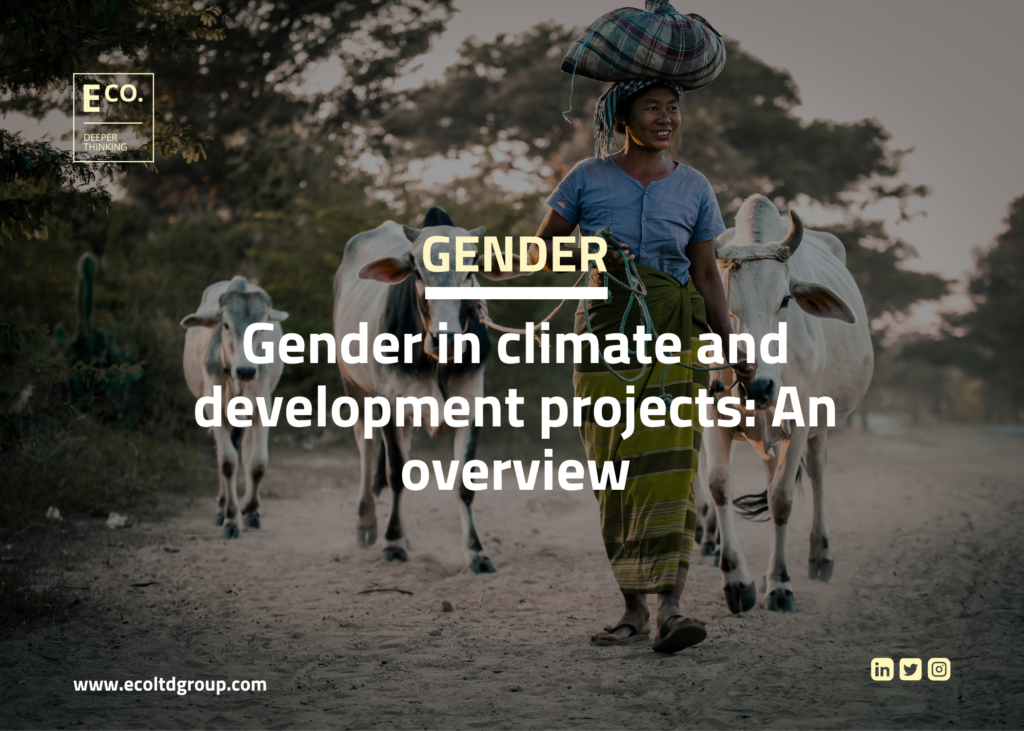
As women and girls are more vulnerable to the uneven shocks of climate change, ensuring that climate finance development projects contain adequate and fit-for-purpose gender considerations is key for creating gender equality for vulnerable beneficiaries.
How can we do this? What considerations need to be made? We have been analysing these questions and the issues that inhabit them, and we’ve developed a small bank of insightful articles, training materials, and reports to help those in the project development community make more meaningful contributions to gender as both a process and a practice.
Explore our useful materials below.
- What’s the connection between climate change and gender?
- Gender developments at COP27
- How can climate finance ensure gender equality?
- Recognising the gender dimensions of Loss and Damage
- E Co. institute: The ‘Gender in climate finance projects’ replay kit
- E Co. institute: GCF B.35 Unpacked with GCF insight #22
- GCF insight #22
- Listen to the gender episodes of our podcast, The E Co. chamber
What’s the connection between climate change and gender?
But why is it that women and girls are the more vulnerable demographic when it comes to the destructive effects of climate change? How can we better understand the connection between climate change and gender equality in order to provide solutions?
This article highlights the complex connections between climate change and gender. We cover topics such as:
- How are we defining gender equality in relation to climate change and finance?
- The link between gender inequality and climate change
- Climate change and intersectional justice
- Reducing gender inequality through climate finance
- Climate adaptation and the role of women
Gender developments at COP27
Underscoring the conversations surrounding adaptation and loss and damage at COP27 was a vital and ongoing debate on gender. This article is a round-up of key gender decisions made at 2022’s climate summit.
In this article, we cover:
- COP27’s key gender decision
- The participation of women at COP27
- Gender spotlight
- The must-read gender reports
How can climate finance ensure gender equality?
Distributing climate finance now necessitates including gender equality as standard, because without gender equality we cannot fight climate change. Project and programme proponents, technical experts, accredited and implementing entities are progressively expected to consider gender mainstreaming from the very outset.
Women make up the majority of the world’s poor, according to analysis by the Overseas Development Institute (ODI), and are disproportionately impacted by climate change, which aggravates existing inequalities. Because of this, climate financing instruments are at an advantageous position to provide gender-responsive support. To do this, mainstreaming gender considerations and ensuring implementation rests on including those considerations within two connected areas; project development and implementation.
What does this look like in practice?
- Project development: Including gender considerations within finance projects
- Best practices for gender-responsive climate finance
- VIDEO: Why is considering gender into climate action so vital?
- Financing bodies and respective gender policies
- Implementation: Ensuring gender equality on the ground
- Best practices for on-the-ground climate finance implementation
- The key messages for climate finance
Recognising the gender dimensions of Loss and Damage
How should a Loss & Damage Fund incorporate gender dimensions?
In this article, Senior consultant Irina Hauler examines what a Loss & Damage Fund needs to do to properly operationalise gender considerations within its creation.
“Operational mechanisms of the Loss & Damage Fund should assess and prioritise the needs of vulnerable populations. Within this analysis, a division of labour, division of resources and needs must be assessed to determine differentiated vulnerabilities among men, women, boys and girls. Such data collection, assessments, and analyses must be carried out in countries most vulnerable to the impacts of loss and damage so that this knowledge base brings clarity towards addressing L&D.”
Ultimately, for an L&D mechanism to become an ongoing successful global effort, gender-responsiveness needs to be included as default in order for it to be an effective response.
E Co. institute: The ‘Gender in climate finance projects’ replay kit
There is mounting evidence that women and girls are often disproportionately affected by the impacts of climate change. Mainstreaming gender within the design of adaptation and mitigation projects and programmes is crucial for securing gender equality and equity within climate-vulnerable communities. This also ensures project/programme outcomes and co-benefits accrue more equitably.
On Tuesday 28 February, we held an online training session on the topic of gender mainstreaming within adaptation and mitigation project development, titled ‘Gender in climate finance projects: what you need to know’.
In this interactive training session, E Co’s Head of Communications, Mariella de Souza-Baker, and experts Roberta Piacci and Debasmita Boral-Rolland explored the concepts of gender mainstreaming within project design, tackling the key concepts, busting some myths, and detailing what gender mainstreaming looks like when employed from the ground up. They also presented scenarios in which gender mainstreaming wasn’t used, and showed how such an omission could affect the overall efficacy of a project.
If you missed this event, not to worry – we’ve created this useful webinar replay kit where you can access the following items:
- A recording of the live training session;
- A copy of the slides we used;
- Other relevant resources you may find useful.
E Co. institute: GCF B.35 Unpacked with GCF insight #22
This webinar, held on Tuesday 28 March, at 12:00 UK time, was our independent analysis of the latest updates of the world’s largest climate fund – the Green Climate Fund (GCF). In this latest dynamic breakdown of events, Dr Grant Ballard-Tremeer and Jamal Gore discussed and unpacked the recent 35th Meeting of the GCF Board (B.35), held on 13 March 2023 in South Korea. They explored the approved projects, accreditations, policy updates, replenishment, the Work plan and pipeline, updates to the Strategic Plan and other relevant insights.
This insightful session also delved deeper into the importance of gender in GCF project design, as some of our team and experts discussed findings from our recently published 22nd GCF insight report, ‘The importance of Gender in GCF project development.‘ They focused on the findings from 78 project developer respondents to our survey.
If you missed this event, don’t worry! This webinar replay kit includes valuable information and a full recording of the webinar as it happened.
GCF insight #22
In our twenty-second edition of our GCF insight series, we explore how gender considerations can be incorporated into Green Climate Fund (GCF) project development.
Drawing on insight gleaned from a survey of respondents in the project development community, such as GCF specialists and IGO professionals, we’ve collated key findings regarding how gender is seen by this community, and how gender inclusions are used in project development.
This study was conducted in February 2023 and consisted of survey questions and semi-structured interviews. The survey received 78 responses and we conducted five interviews – three with external stakeholders and two with gender experts, Debasmita Boral Rolland and Roberta Piacci.
Download GCF insight #22 here.
Speak to one of our gender experts:
 |
Senior consultant |
 |
Consultant |
Listen to the gender episodes of our podcast, The E Co. chamber
We’re very proud to announce the release of our new podcast, The E Co. chamber. This is a podcast that opens the doors to the world of climate finance and development, and the echo chambers they create. Through the insights and experiences of those of us on the inside, we’ll be heading behind the scenes and unpacking the challenges and opportunities faced on a daily basis, and discussing the trends we observe in the sector.
Our first two episodes feature experts Roberta Piacci and Debasmita Boral Rolland, and are moderated by Head of Communications, Mariella de Souza Baker. Our first episode is the first part of a two-part special, focusing on the topic of gender, and experiences of gender mainstreaming and challenges for development practitioners. The second explores what gender mainstreaming should look like in real-life climate finance projects and programmes.
Discover more about gender and other climate finance topics
Climate finance is a complex subject with an increasingly important global presence. This makes it an incredibly worthwhile subject to stay up-to-date with. Whether you work in development, climate resilience, non-governmental spheres or even academia, subscribe to our newsletter to not only stay notified of the important work that E Co. does, but the wider world of climate finance.
Looking for insight into climate finance? Look no further
Get in touch with our climate finance consultants to discuss a project you’re working on and create successful, fit-for-purpose projects, now and in the future. Email us at: amy@ecoltdgroup.com or find us at the following:
Twitter: @ecoltdnews
LinkedIn: E Co.
Instagram: @ecoltdnews
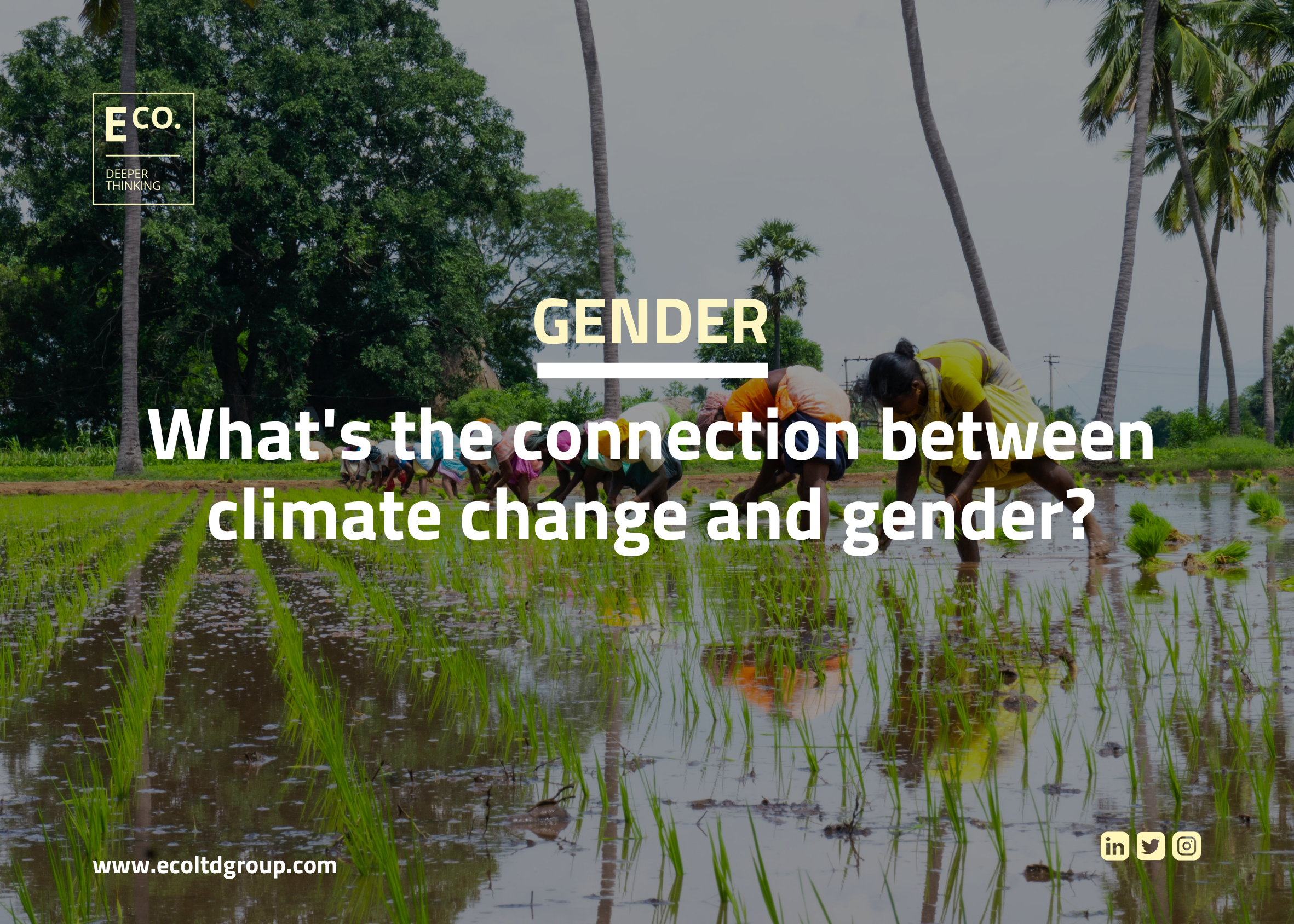
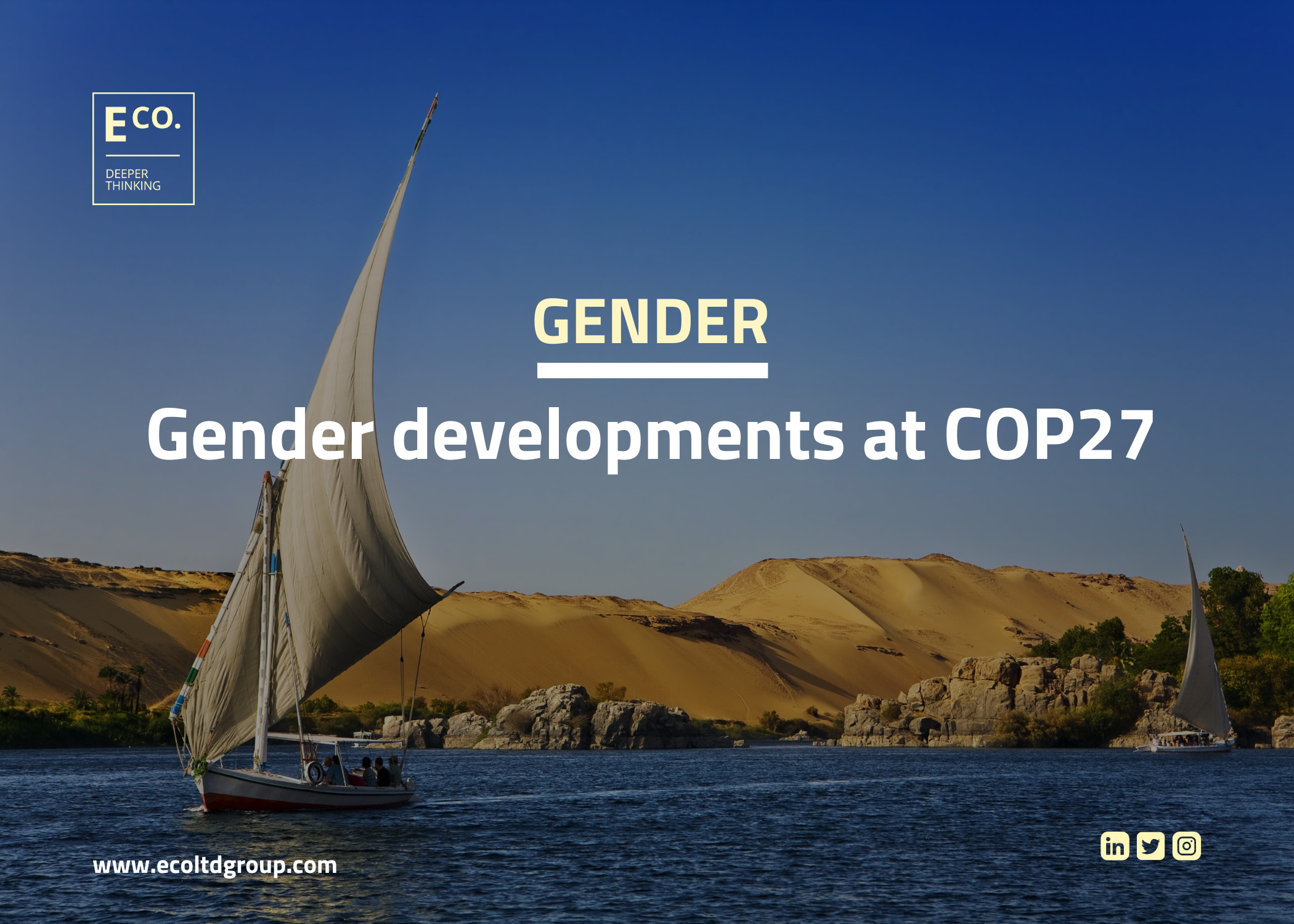
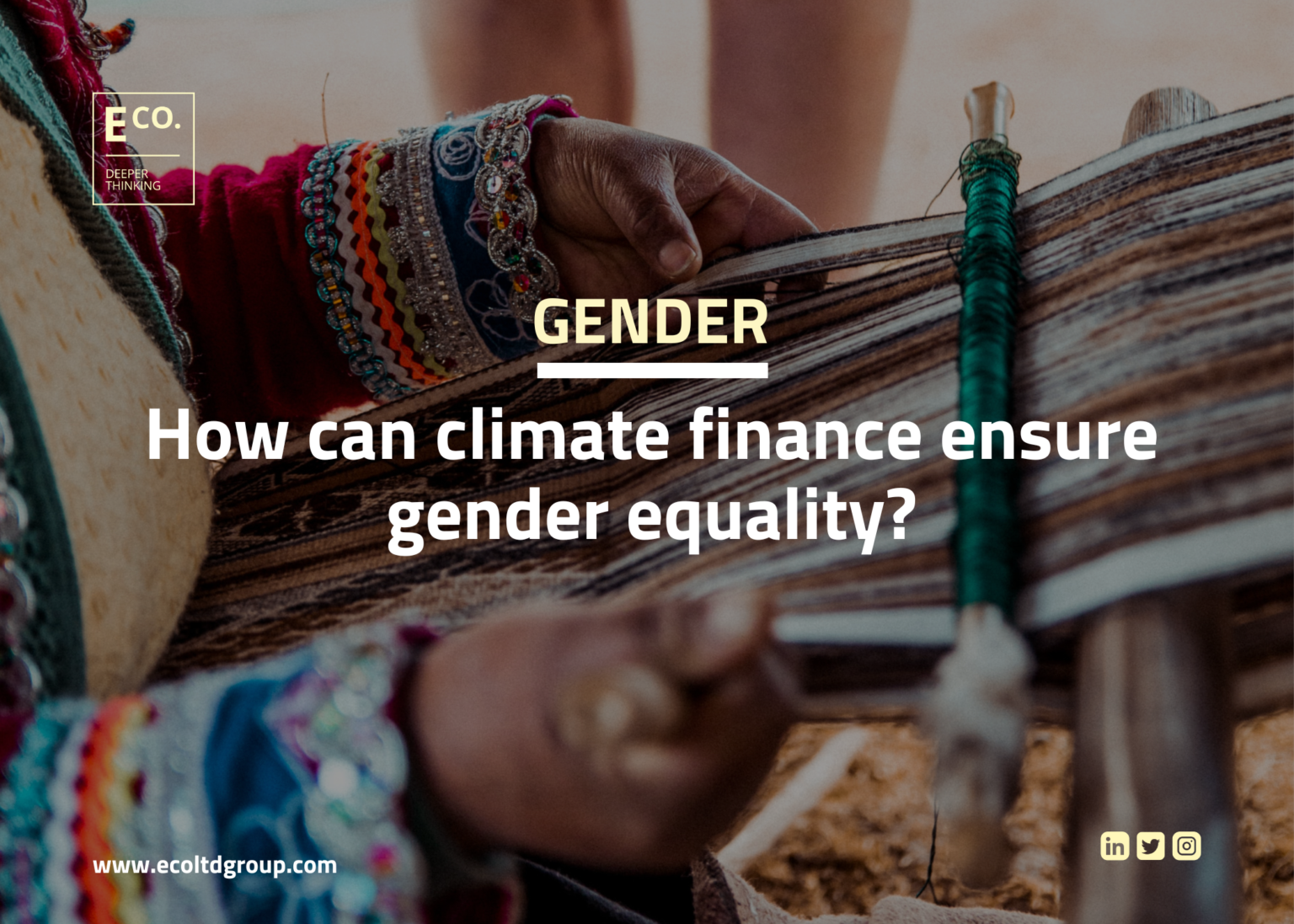
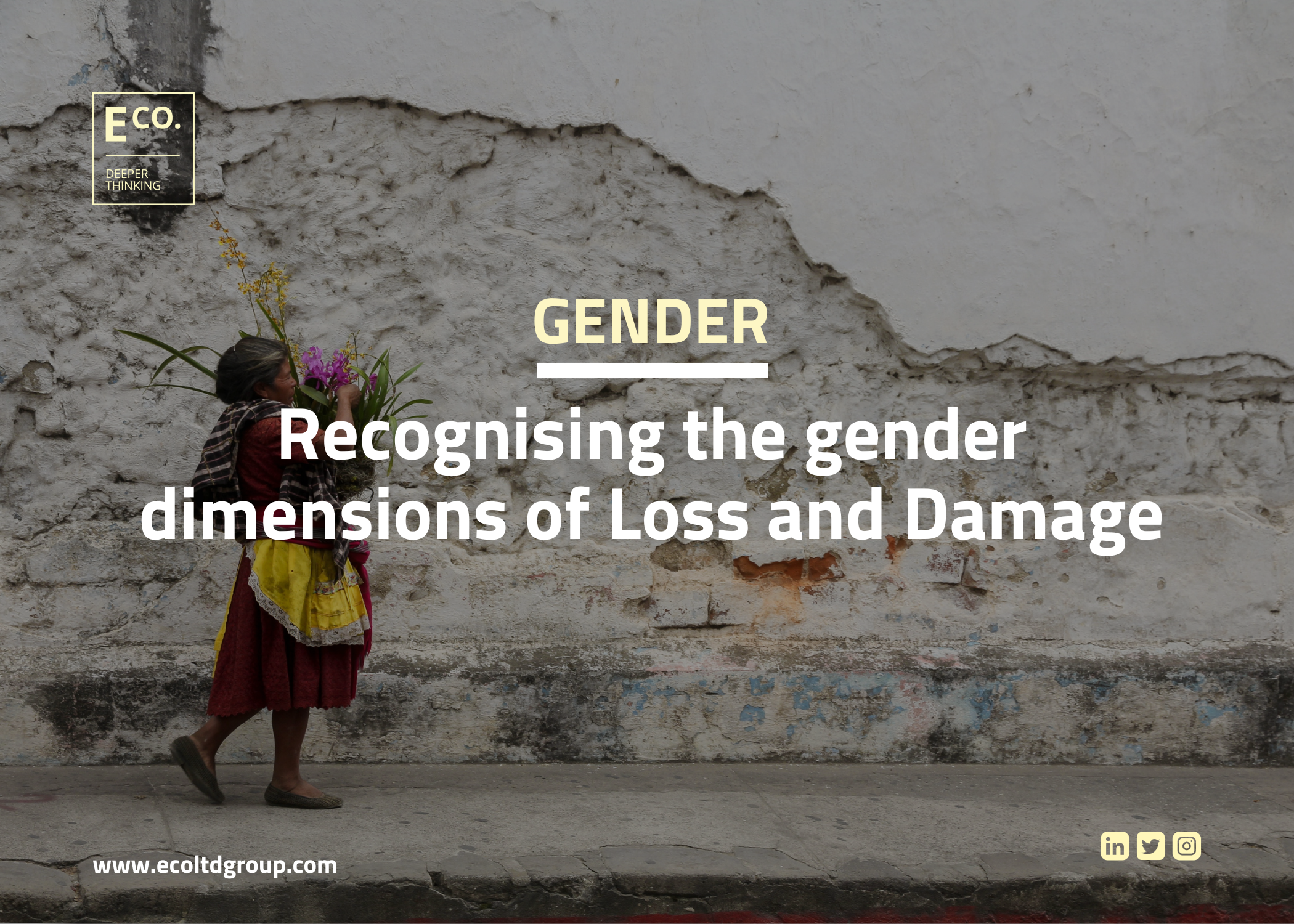
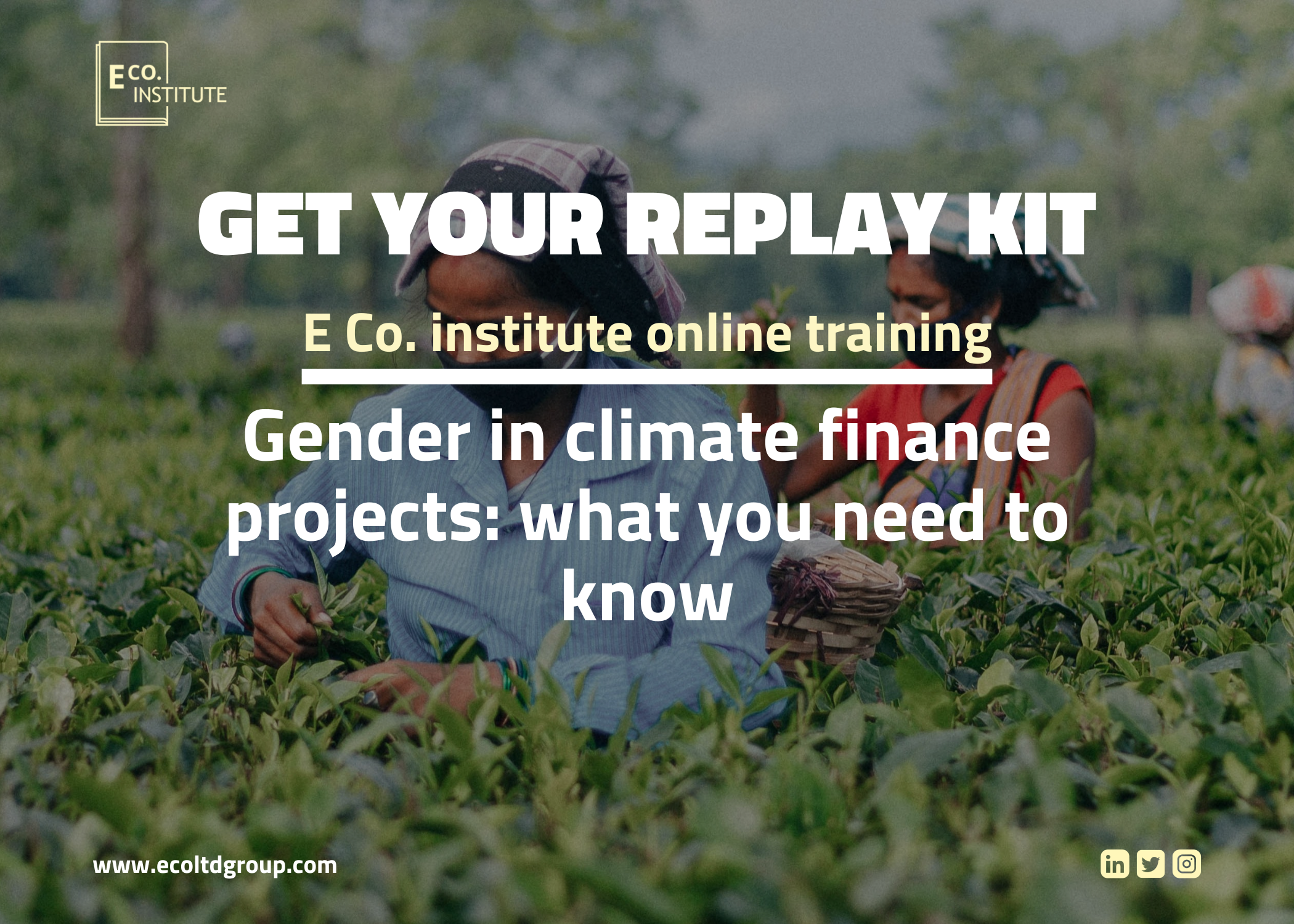

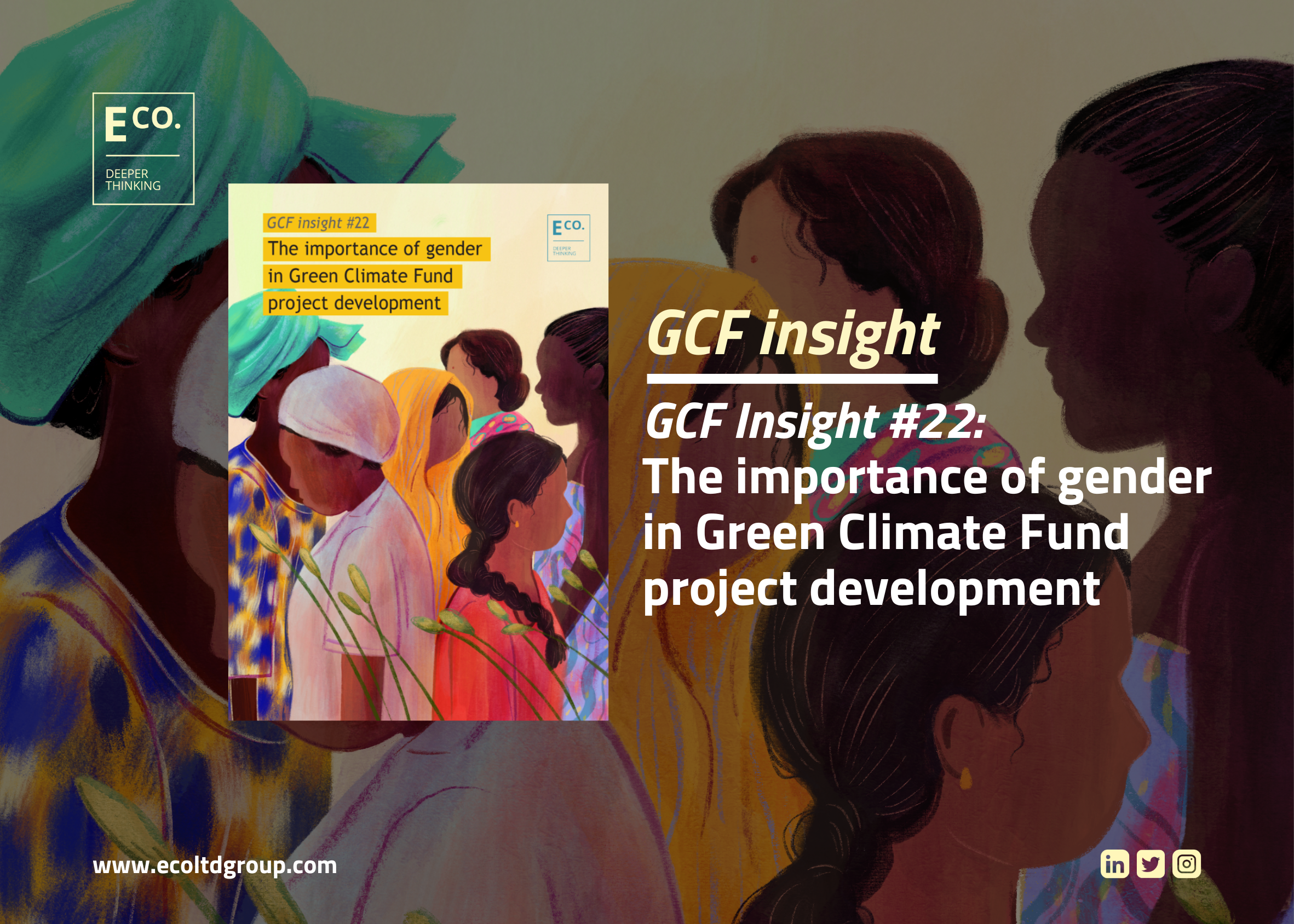

Join the conversation by posting a comment below. You can either use your social account, by clicking on the corresponding icons or simply fill in the form below. All comments are moderated.